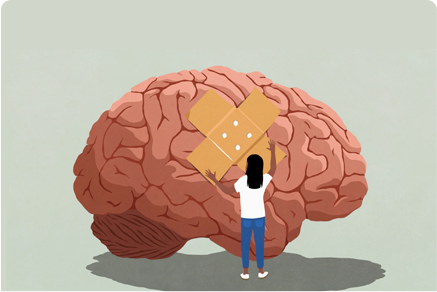
Brain Injury Research
Types of Brain Injuries:
1. Traumatic Brain Injury (TBI):
• Caused by external forces (e.g., falls, car accidents, sports injuries).
• Can range from mild (concussion) to severe (extended loss of consciousness or permanent disability).
2. Acquired Brain Injury (ABI):
• Non-traumatic injuries such as those from strokes, infections, tumors, or lack of oxygen (hypoxia).
3. Chronic Traumatic Encephalopathy (CTE):
• Associated with repetitive head injuries, often seen in athletes and military personnel. Key Areas of Research
1. Understanding Mechanisms:
• Research focuses on how injuries damage brain cells and disrupt neural connections.
• Studies on inflammation, oxidative stress, and cell death mechanisms are crucial.
2. Diagnostic Tools:
• Development of advanced imaging techniques like fMRI and PET scans.
• Biomarker research to identify specific proteins or molecules indicating brain injury severity.
3. Treatment Innovations:
• Pharmacological treatments targeting inflammation, swelling, or neural repair.
• Use of neuroprotective agents to prevent further damage.
4. Rehabilitation Therapies:
• Research into physical therapy, occupational therapy, and cognitive rehabilitation.
• Brain-computer interfaces (BCI) to assist recovery in severe cases.
5. Neuroplasticity and Recovery:
• Investigating how the brain adapts and rewires itself post-injury.
• Strategies to enhance neuroplasticity, such as stimulation techniques and targeted exercises.
6. Prevention and Risk Reduction:
• Helmet designs, sports safety protocols, and fall prevention measures.
• Education about recognizing and managing concussions.

